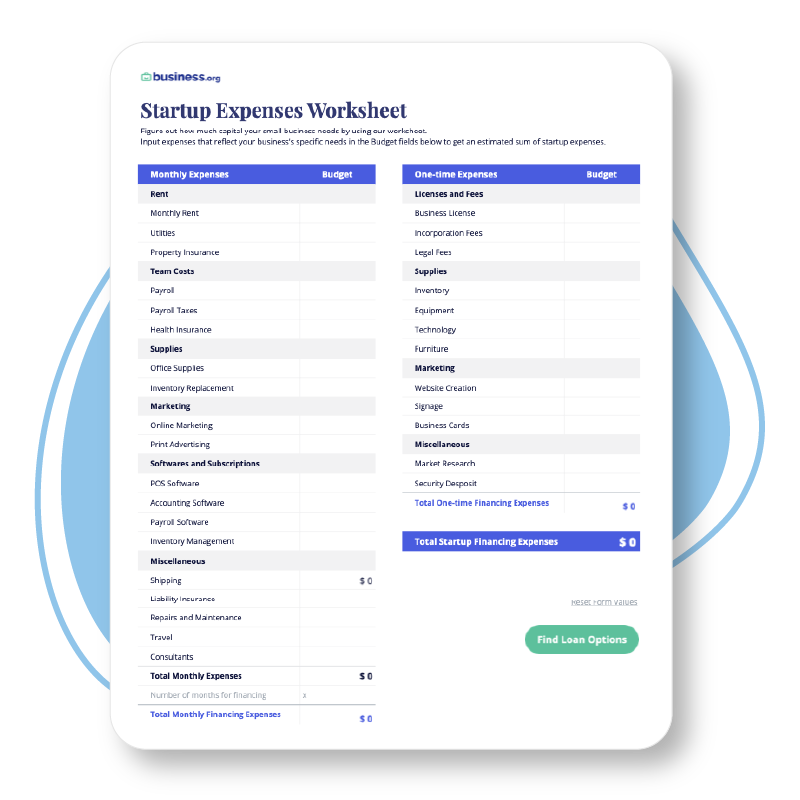💸 See if your business qualifies for a tax credit worth up to $26k per employee. 📞 Call Now: 855-979-9597
What You Need to Know to Start Selling Products
We are committed to sharing unbiased reviews. Some of the links on our site are from our partners who compensate us. Read our editorial guidelines and advertising disclosure.
If you’re starting a small retail business, it’s important to know how to source products. That’s why Business.org asked small-business owners for their tips and tricks on finding the right products to sell in their stores. Many business owners shared how they source products and the licenses they acquired to get their business off the ground.
Find the right products
The first step for any business owner is figuring out what to sell. Maybe you started your business with a specific product in mind or a gap to fill in the market. But if not, there are still options. Market research is one of the best ways to go. It allows you to research consumers and see what products they are interested in.
Market research also allows you to figure out how to best price products so that you attract customers while turning a profit. Be ready to run surveys, ask questions, and see what people are buying so you can stock up.

Williams also outlined a six-step process for inventory sourcing that can help any business owner:
- Find quality sources for your products.
- Contract negotiations.
- Payment terms are established.
- Market research is conducted.
- Product demos and quality testing.
- Establish benchmarks and standards.
You don’t just have to conduct market research or source products online. There are a lot of trade shows and networking opportunities you can attend this year to meet suppliers.

What is inventory?
Inventory is any product you sell to customers. It could include candles, food, artwork . . . anything! Some business owners also use inventory management software to track what they have in stock and what’s going out the door.
Business.org has a bunch of resources to help you organize your inventory—from explainers on the types of inventory management to our favorite software options for small-business owners.
By signing up I agree to the Terms of Use and Privacy Policy.
Work with suppliers
Once you’ve decided which products to source, the next step is working with manufacturers, distributors, and wholesalers that can provide those products to your businesses.

Distributors are a key part of the small-business ecosystem. Another option for your business is wholesalers who act as middlemen while offering lower prices to small businesses. They’re a great option and allow you to build up a network that can supply your growing business.

Maintain multiple supplier relationships
It’s important to diversify your suppliers so you’re not just relying on one to stock the inventory for your whole store. Multiple suppliers allows you to keep items in stock and find new products to sell to customers.

Another business owner recommended working with multiple suppliers to make it easier for your business. However many suppliers you work with, it’s important that you’re practicing relationship management with each one. Fostering a good relationship ensures that you receive goods on time and are upfront about any difficulties.

Obtain the right licenses
So, you have inventory, but can you legally sell your products? That’s where business licenses and registrations come into play.

Of course, you can’t forget to pay your taxes. Many business licenses will include a sales tax license, but it’s always good to double check.
Don’t forget to check in with your local county or city tax office to see if there’s anything else you need. New York City, for example, has a step-by-step tool on the official city website to guide you through the process.

Besides a business license and a business name registration, there are a few other licenses that are helpful to have in your back pocket. One entrepreneur recommended three licenses that are dependent on what kind of business you’re running.

What do I need to start a business?
Since each US state has different requirements, the specific business licenses and registrations can vary dramatically. But the basics include a federal Employer Identification Number (EIN), registering your business, reserving your business name, and settling on a legal structure. Sounds like a lot, right? Luckily, Legal Zoom can help with getting an EIN and Incfile will make registering your business a breeze. We also recommend BizFilings for help with finding the licenses your business needs to be on the right side of the law.
The takeaway
As you start your business, it’s important to figure out inventory sourcing and business licensing. We recommend sourcing products and working with suppliers early to cultivate good relationships. Plus, it helps to have the right licenses and documentation early on to get your business going.
With the right guides, tools, and relationships, you’ll be on your way to selling in no time.
Did you find and source products and now you’re ready to sell? Check out our top choices for ecommerce website builders.
Related read: Top Alternatives to Selling on Etsy
Related content
Disclaimer
At Business.org, our research is meant to offer general product and service recommendations. We don't guarantee that our suggestions will work best for each individual or business, so consider your unique needs when choosing products and services.






